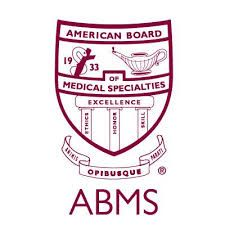
Jose Antonio Stoute MD FACP, FIDSA
Professor of Medicine, and Microbiology and Immunology
Join to View Full Profile
4430A Sheridan StSte AHollywood, FL 33021
Phone+1 954-962-0040
Fax+1 954-962-7901
Dr. Stoute is on Doximity
As a Doximity member you'll join over two million verified healthcare professionals in a private, secure network.
- Gain access to free telehealth tools, such as our “call shielding” and one-way patient texting.
- Connect with colleagues in the same hospital or clinic.
- Read the latest clinical news, personalized to your specialty.
Education & Training
 Walter Reed Army Medical CenterInfectious Diseases, 1991 - 1994
Walter Reed Army Medical CenterInfectious Diseases, 1991 - 1994 Emory University School of MedicineResidency, Internal Medicine, 1985 - 1988
Emory University School of MedicineResidency, Internal Medicine, 1985 - 1988 University of Miami Leonard M. Miller School of MedicineClass of 1985
University of Miami Leonard M. Miller School of MedicineClass of 1985 University of South FloridaB.A, Biology, 1978 - 1981
University of South FloridaB.A, Biology, 1978 - 1981
Certifications & Licensure
 FL State Medical License 2019 - 2026
FL State Medical License 2019 - 2026 PA State Medical License 2008 - 2026
PA State Medical License 2008 - 2026 GA State Medical License 1987 - 2025
GA State Medical License 1987 - 2025 LA State Medical License 2024 - 2025
LA State Medical License 2024 - 2025 American Board of Internal Medicine Internal Medicine
American Board of Internal Medicine Internal Medicine American Board of Internal Medicine Infectious Disease
American Board of Internal Medicine Infectious Disease
Awards, Honors, & Recognition
- Legion of Merit for exceptional performance during a military career spanning >20 years 2009
- Order of Miliatry Medical Merit for exceptional accomplishment Medical Corps Officer, US Army, 2006
- Buescher Young Scientist Award WRAIR Association, Edward L, 1998
- Join now to see all
Clinical Trials
- Controlled Crossover Study of AIONX Antimicrobial Surface for the Prevention of Healthcare-associated Infections Start of enrollment: 2017 Jul 01
Roles: Principal Investigator, Contact
Publications & Presentations
PubMed
- 1 citationsTreatment of Plasmodium falciparum merozoites with the protease inhibitor E64 and mechanical filtration increases their susceptibility to complement activation.José A. Stoute, Mary E. Landmesser, Sergei Biryukov
Plos One. 2020-08-21 - 20 citationsPlasmodium falciparum strains spontaneously switch invasion phenotype in suspension cultureGordon A. Awandare, Prince B. Nyarko, Yaw Aniweh, Reuben Ayivor-Djanie, José A. Stoute
Scientific Reports. 2018-04-10 - 13 citationsA Murine Model to Study Epilepsy and SUDEP Induced by Malaria Infection.Paddy Ssentongo, Anna E. Robuccio, Godfrey I. Thuku, Derek G. Sim, Ali Nabi
Scientific Reports. 2017-03-08
Journal Articles
- Plasmodium falciparum field isolates use complement receptor 1 (CR1) as a receptor for invasion of erythrocytes.Awandare GA, Spadafora C, Moch JK, Dutta S, Haynes JD, Stoute JA, Mol.Biochem.Parasitol
- Plasmodium falciparum antigenic variation. Mapping mosaic var gene sequences onto a network of shared, highly polymorphic sequence blocks.Bull PC, Buckee CO, Kyes S, Kortok MM, Thathy V, Guyah B, Stoute JA, Newbold CI, and Marsh K, Mol Microbiol
- Increased deposition of C3b on red cells with low CR1 and CD55 in a malaria-endemic region of western Kenya: implications for the development of severe anemia.Odhiambo CO, Otieno W, Adhiambo C, Odera MM, Stoute JA, BMC
- Join now to see all
Books/Book Chapters
Lectures
- Novel Model of Severe Malarial Anemia: Where Are All the Red Cells Going?Division of Malaria Vaccine Research, Walter Army Institute of Research, Silver Spring, MD
- Complement and Antibody-mediated enhancement of red cell invasion by Plasmodium falciparum.Gordon Research Conference, Red Cells
Grant Support
- Pediatric Malaria Research Fellowship Training ProgramFogarty International Center2003–2006
- Role Of Immune Complex In Severe Malarial AnemiaNational Heart, Lung, And Blood Institute2002–2005
Other Languages
- Spanish
Viewing the full profile is available to verified healthcare professionals only.
Find your profile and take control of your online presence:









